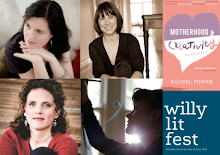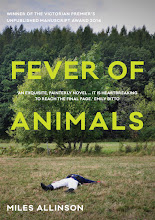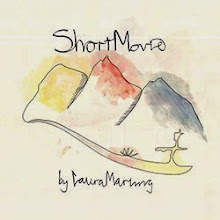 Well, writing might not pay the bills, but at least it can win you a new pair of shoes!
Well, writing might not pay the bills, but at least it can win you a new pair of shoes!Yep, I dashed off one of those “tell us why in 10 words or less…” things, and next thing I know some shiny Oxford ‘brogues’ land on my doorstep (thank you marie claire).
Just when you thought I couldn’t be so frivolous.
I can’t really afford to follow fashion, so it’s lucky I don’t have time to shop, but I have to admit that I’ve been coveting a pair of this style of shoe ever since I saw them on one of The Sartorialist's subjects (a Sydney woman, in fact — see Friday, May 08, 2009). My partner's not so sure about them — says they're a bit sexy/prim, whatever that means — but who cares. You think he'd be grateful I was getting out my uggies occasionally.
I am a bit of a compulsive viewer of the Sart’s site, partly because it is one of the only fashion forums that doesn’t leave me feeling completely inadequate. It’s full of beautiful people, to be sure, but is also as much about character and style as it is about clothes.
So those of you who write — you may as well try using your skills to win free stuff. I know a writer who has had far better success than me, winning holidays and more (admittedly, her husband’s a marketing manager, which must help a bit.)
But last year I did win a weekend in a hotel in the same kind of comp. And for those of you with small children and minimal childcare options, you know how mind-blowing that was! We had no choice but to palm the kids off for the weekend, catch the tram into the city and rediscover what Melbourne has to offer the footloose and fancy-free nowadays.
Once I’d gotten over the fact that a Hairy Canary gin and tonic now costs more than $10 (is that what happened while I was (not) sleeping?), it was a bizarre thrill to be alone together with nowhere in particular to go and no need to wake up before 7am the next morning.
 Just quickly on another matter, I recently had the pleasure of interviewing Glendyn Ivin, the director of new Australian film Last Ride, for the AFI website (story should be on the site early next week). His spectacular and devastating film about a fraught father–son relationship opens nationally on 2 July and is well worth the price of a babysitter.
Just quickly on another matter, I recently had the pleasure of interviewing Glendyn Ivin, the director of new Australian film Last Ride, for the AFI website (story should be on the site early next week). His spectacular and devastating film about a fraught father–son relationship opens nationally on 2 July and is well worth the price of a babysitter.To my surprise, he and his wife (a dancer) had actually read The Divided Heart. We had a chat along those lines and because I couldn’t fit his generous and insightful comments in the AFI article, I’ll put them here:
Yes, it’s very interesting making a film about parenting and about a father trying but failing miserably at being a good parent, and then having those same thoughts on a very different scale at home, in that I haven’t been there, and when I am there I’m in an incredibly distracted or stressed state or freaking out or just thinking about other things other than what I should be thinking about.
I must say I have an incredibly supportive wife and supermum who has just held the fort, so to speak. I can’t speak highly enough of her. If it wasn’t like that, it would’ve made my job much more stressful and hard to deal with. It’s kind of easier, dumbly, for men to say, ‘This is what I’m doing’, and it must be incredibly hard for a woman who’s being a mum because they have a lot of other baggage that comes along with it.
Good on you, Glendyn.

















